Judith Barrington's Writing the Memoir
Chapter 12
&
Christopher Vogler's The Writer's Journey
Introduction to 25th Anniversary & Previous Ed.
Your memoir is about you (obviously) but it’s not just about you. In this episode we cover Judith Barrington’s chapter on how (and why) to bring events from the real world into your memoir. And in our writing exercise we try it out by remembering our own lives during a moment in history.
Then it’s on to the penultimate chapter in Writing the Memoir where Barrington has some self-care advice. Who can disagree about self care? Well…
Also in this episode Kim interviews a poet who left the Plain community about how she navigates revealing true details when writing about her experiences from that time.
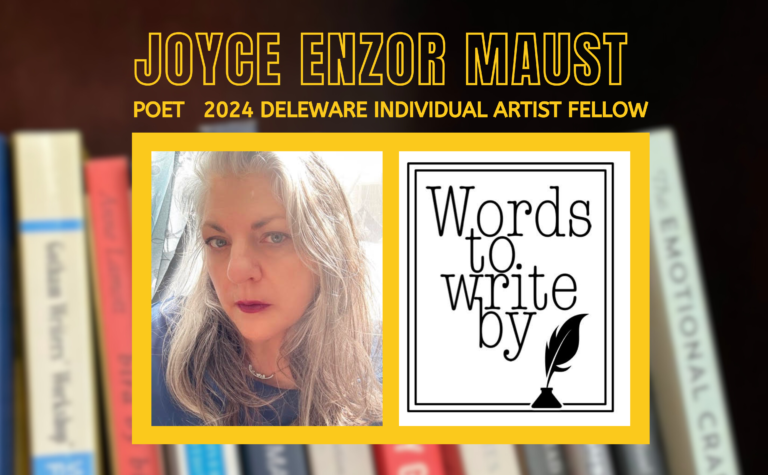
In our previous episode, we discussed the moral and social implications of writing about living people. According to Barrington, “often it is harder to know what matters most: someone’s livelihood or your need to tell the story.” Indeed, many writers are torn between the need to tell one’s story and the backlash that may follow. In this episode, Joyce Enzor Maust, a poet and “generational abuse chain-breaker,” joins us in conversation about the opportunity to educate over the need to name names in our writing.
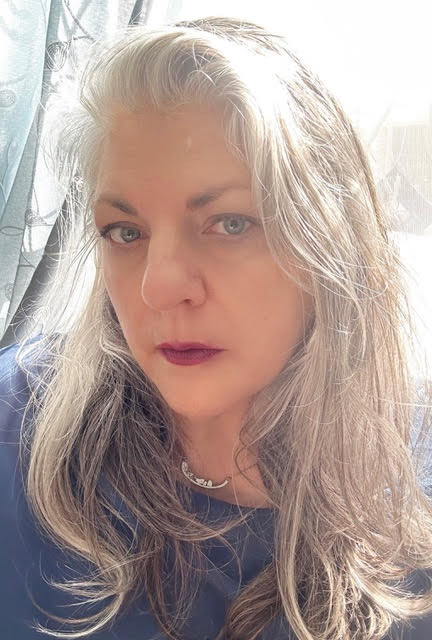
A lot is at stake for Maust and those she is trying to reach. In her poetry, she must navigate the culture of isolation within the Amish community she grew up in and her need to raise awareness to the abuses within that community. To achieve that balance, what she calls “the fine line of education on the inside and education on the outside,” she changes names, settings, and time periods. Although naming abusers in her writing may validate her experiences, within the Plains Community “the door will be shut” and those readers who need access to her work the most won’t receive it. These choices ensure she can both “protect innocents and bring awareness” at the same time so the readers who need her most can gain access to her work.
"I want to give voice not to just my self but for the generations that came before me."

Joyce Enzor Maust is a poet and a 2024 Delaware Individual Artist Fellow. In her work, she strives to “allude to intense and emotional subjects,” often referencing the abuse and pain she suffered in childhood, in a way that her readers can understand and access. You can find out more about her work here.
The Writing Exercise
Think of an event of historic or cultural importance that you remember. Write personally about how you witnessed or heard about that event and how it impacted you.
Your Memoir & the World
We’re nearing the end of Judith Barrington’s Writing the Memoir and boy can you tell. It has all the hallmarks of the closing chapters of a writing advice book: random chapters lacking adequate context, personal philosophies, passive aggressive name dropping, and lots of advice that feels better off left unsaid.
One could argue this chapter, “Your Memoir & the World,” goes without saying, but it does have some helpful strategies for getting in touch with your reader, especially if you’re A memoir encompasses not just your inner world, but the outer, larger world around you.

Signposting
Including details of the world around you in your memoir grounds the reader in both time in place, but also your inner, private world, “something they recognize as familiar, from which they can venture into the unfamiliar.” In other words, when you weaving in the external world, you give the reader access to your interior world. In other words, you’re providing common ground.
Barrington illustrates this technique from and example in her own memoir, Poetry & Prejudice. Note how she places the reader in a familiar, mundane classroom setting most people would recognize:
“For the next ten minutes, there was a lot of squirming, writing, balling up of paper, and giggling…two girls, who were sitting in front, whispered to each other until I stared at them, when they pouted and looked at their paper, but made it clear they were just waiting till I looked away so they could resume their conversation.”
Most people would recognize this setting on both a physical and emotional level. We’ve been in a classroom before and we recognize students like those Barrington describes. One could argue we’ve been lulled into a sense of security, because once she establishes this setting, she gives us a window into her thoughts:
“The first thought that came into my head was that if I told them I was a lesbian I would not by physically safe in the cabin.”
In order to relay the significance of her experience, “the impact of which only works on them if they are already willing to be there in that room,” she starts them in a place they do understand.
Authenticity
In the current world of selfies and influencers, the term, “authenticity,” has joined the ranks of “artisanal” and “hand crafted.” However, Barrington’s book (published in 1997) predates social media and, Renee would argue, has more authority on achieving authenticity in one’s writing than if one asked ChatGPT, which tells you to “find your voice” and “take risks.” (Thanks for nothin’, bot).
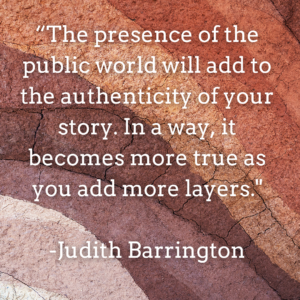
According to Barrington, a writer earns agency when they include the reader into the outside world beyond just the author’s personal journey. If you can help the reader see, hear, and feel where and when your story takes place, it grants you, dare we say, authenticity.
If you heard the podcast, we mention the romantasy series, A Court of Thorns and Roses, as an example of an author who fails to write an authentic protagonist. If you would like a breakdown of just how hilariously awful the books are, check out: Jealous Haters Club.
Watch Out for the Myths
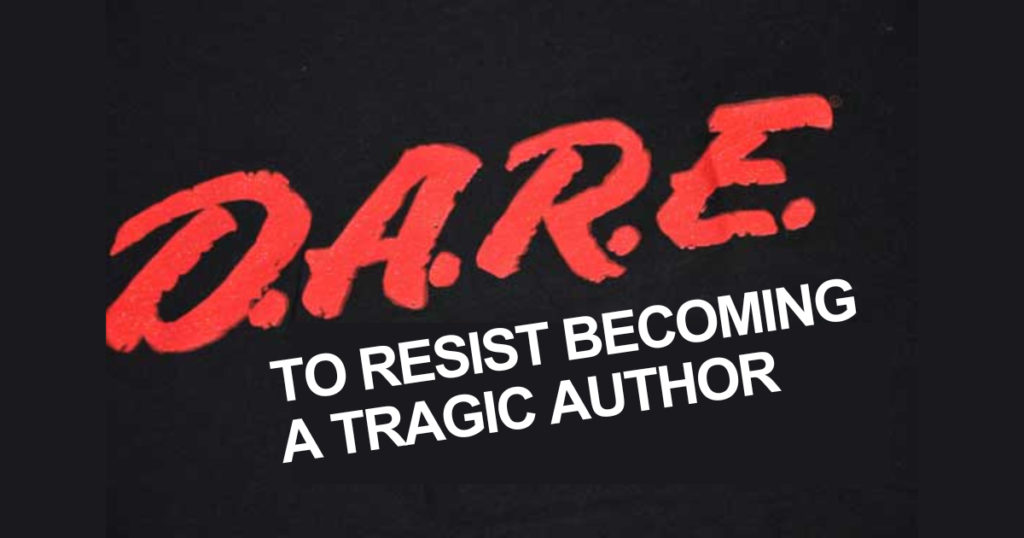
In this chapter, Barrington tries to squeeze substance from a stone to warn us against adopting the tragic, lonely, depressed writer stereotype we’ve all grown to love (Don’t lie. You know you wanted to be Edgar Allen Poe in HS). Although the previous chapter included at least a helpful strategy, this one does little more than wag a finger to those of us who just want to Fight for our Right to party.
“Writing itself is hard enough without adding alcoholism, drug addiction, and angst to the qualifications.”
In other words, we leave this chapter feeling as if Barrington isn’t angry, just disappointed.

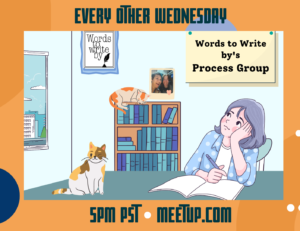
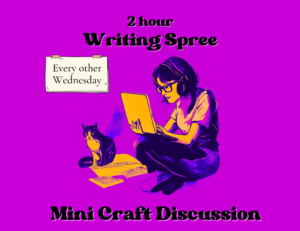
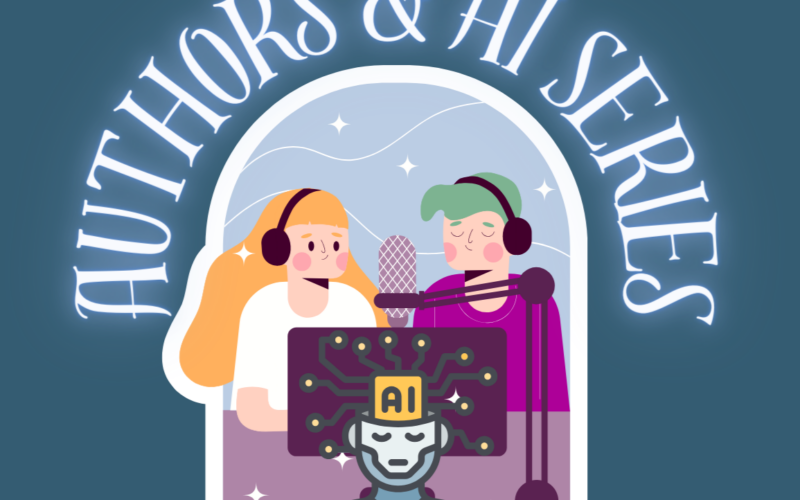
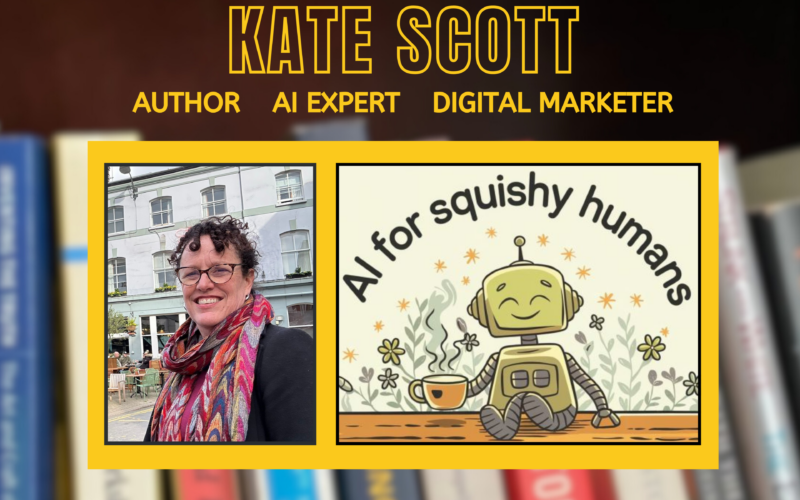
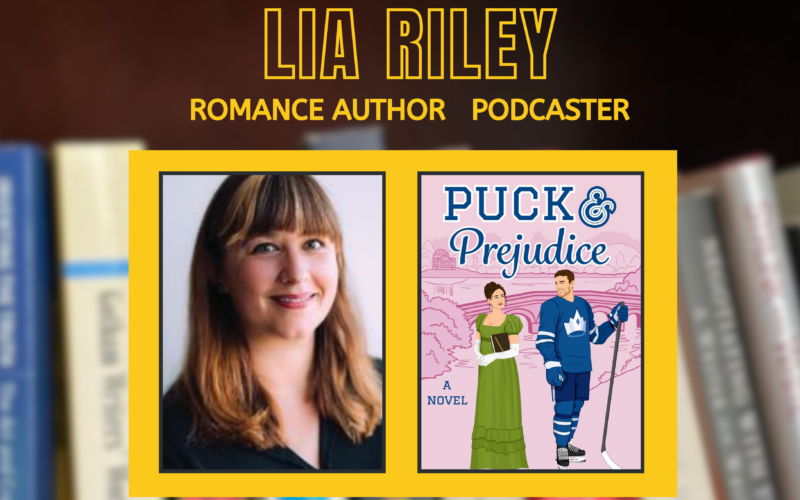
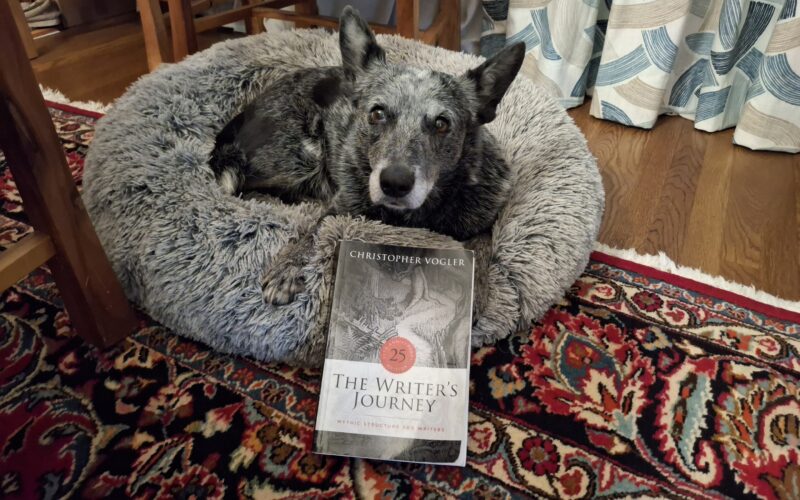
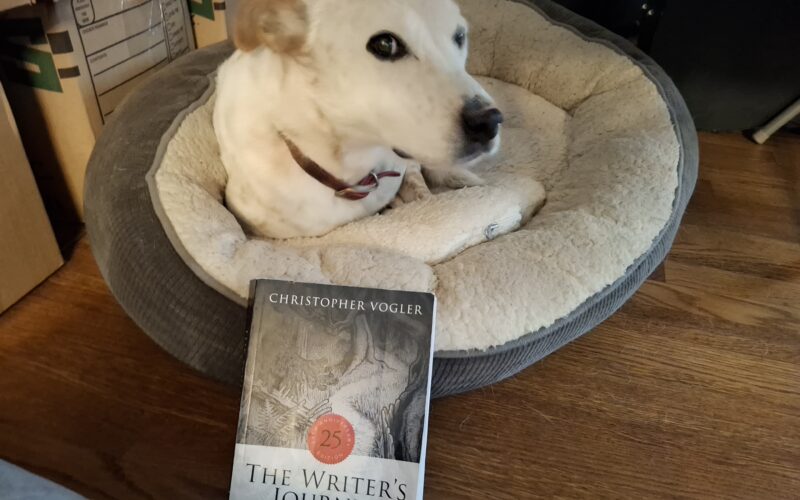
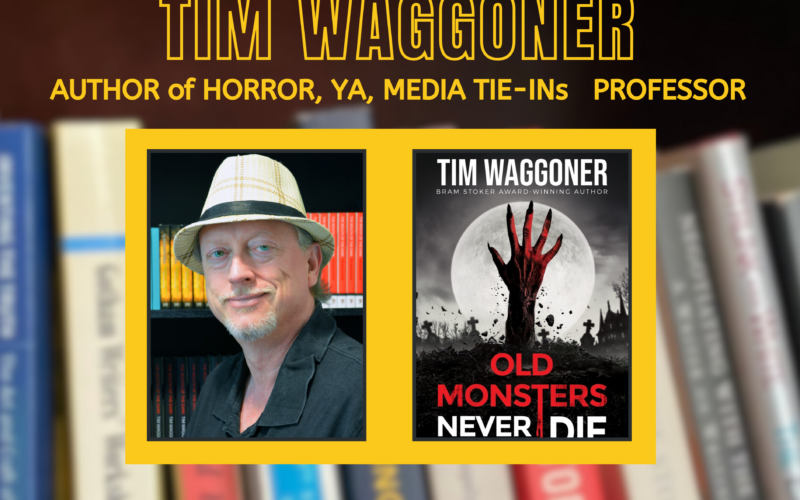
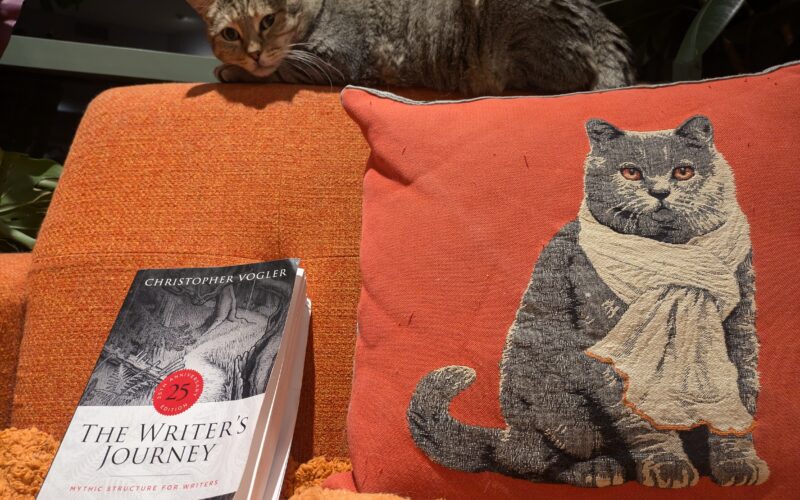
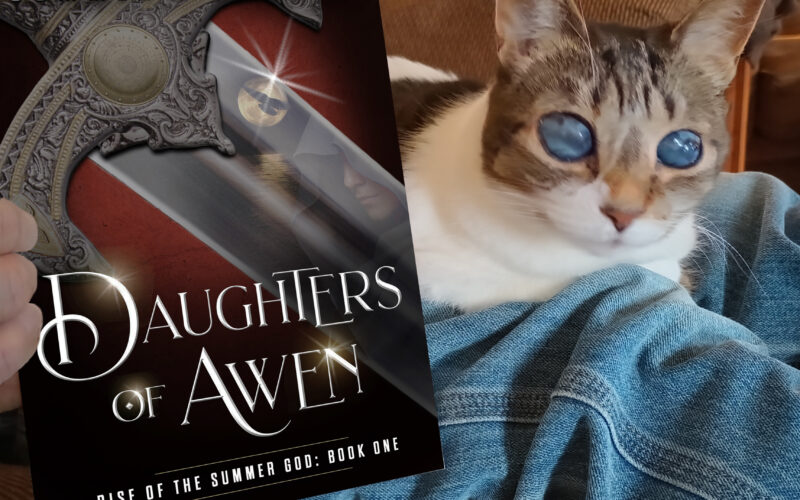

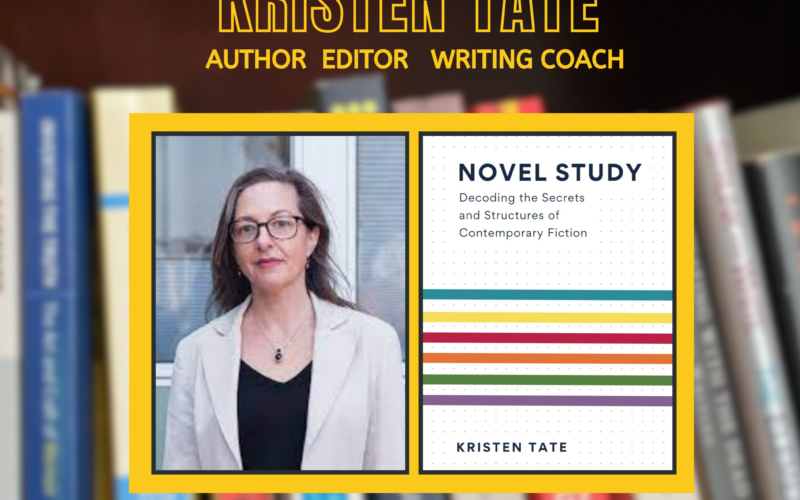
Not Your Usual Words to Write By: The AI Podcasting Challenge
Authors & AI SeriesEpisode 7: Not Your Usual Words to Write By: The AI Podcasting Challenge! Is nothing sacred? After exploring how AI might steal our writing jobs, we’re...